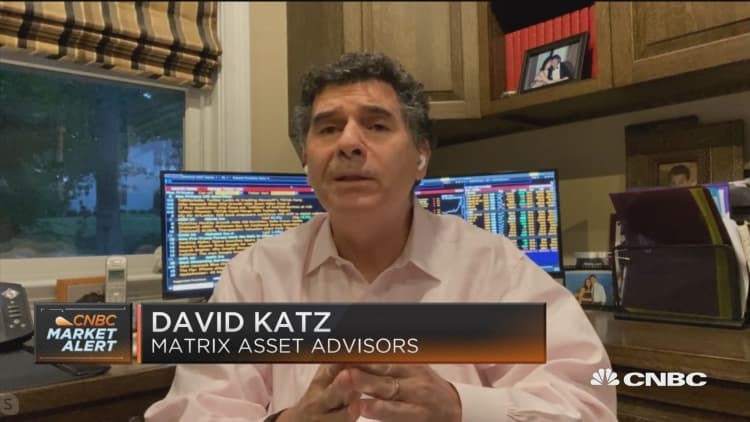
The Dow Jones Industrial Average rallied on Monday as gains in economically sensitive stocks offset losses from mega-cap tech stocks like Microsoft.
The 30-stock Dow advanced 357.96 points to 27,791.44, a gain of 1.3%. Boeing and Dow Inc. were among the best-performing stocks in the blue-chip index, rising more than 5% each. Caterpillar, considered to be a bellwether for the global economy, also climbed more than 5%. JPMorgan Chase added 1.2%.
Meanwhile, the S&P 500 climbed 0.27% to finish at 3,360.47 as both the energy and industrials sectors rose more than 2.4% as cyclical stocks led the major indexes higher on the week's first day of trading.
Monday's session was the S&P 500's seventh straight day of gains. The advance left the S&P 500 less than 1% away from a record high.
"This actually suggests investors are turning more sanguine on the broader macro landscape, encouraged by the solid CQ2 earnings season and the bullish July economic data last week," said Adam Crisafulli of Vital Knowledge.
The Nasdaq Composite struggled, however, and dropped nearly 0.4% to 10,968.36 as traders trimmed positions in Big Tech stocks. Facebook and Netflix shares slid at least 2% each along while Microsoft lost 1.99%. Amazon dipped 0.6% and Alphabet fell 0.1%.
Monday's moves came after President Donald Trump signed several executive orders over the weekend aimed at extending coronavirus relief.
Those orders continue the distribution of expanded unemployment benefits, defer student loan payments through 2020 and provide a payroll tax holiday. However, the unemployment benefit will be continued at a reduced rate of $400 per week. Originally, the benefit provided workers impacted by the pandemic with $600 per week.
"While this move by Trump may lead to legal challenges, politically it puts pressure on Congress to reach a deal," wrote Bill Stone, chief investment officer at Stone Investment Partners.
Trump's moves come after congressional leaders failed to make progress on a new coronavirus stimulus package last week. Several benefits from a package signed earlier in the year lapsed at the end of July, raising uncertainty about the U.S. economy moving forward.
Still, Trump's orders face a legal challenge as continuing the programs would require federal funding, which Congress controls. Democrats have insisted they will not support a bill that does not extend the $600 per week benefit.
On Monday, Treasury Secretary Steven Mnuchin told CNBC's "Squawk on the Street" he is open to more stimulus talks, noting: "We're prepared to put more money on the table."
"The fiscal cliff still represents downside risk for August," said Aneta Markowska, chief financial economist at Jefferies. Markowska added, however, any weakness from this will be "short-lived."
"By September, another round of fiscal support will create positive momentum. The reopening of schools, even if only in some states, will reinforce the positive momentum by (1) boosting back-to-school shopping and (2) allowing more parents to return to work in September," she said in a note to clients. "Bottom line, all the stars are lining up for another inflection point in activity and a second leg up in the reopening."
Wall Street was coming off a strong weekly performance. The Dow rose 3.8% last week for its biggest weekly gain since June. The S&P 500 climbed 2.5% along with the Nasdaq Composite. Last week's gains come during a historically tough time for the market as August kicks off the worst three-month stretch for the S&P 500.
— CNBC's Yun Li and Michael Bloom contributed reporting.
Subscribe to CNBC PRO for exclusive insights and analysis, and live business day programming from around the world.


